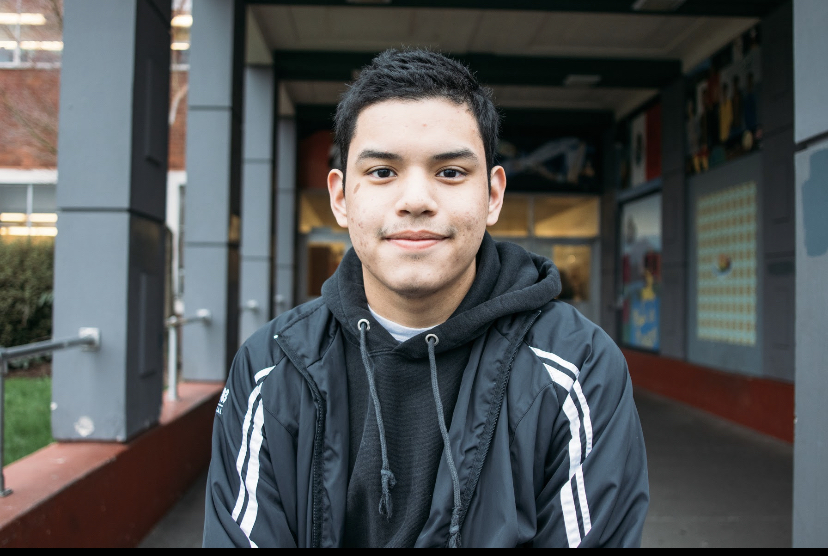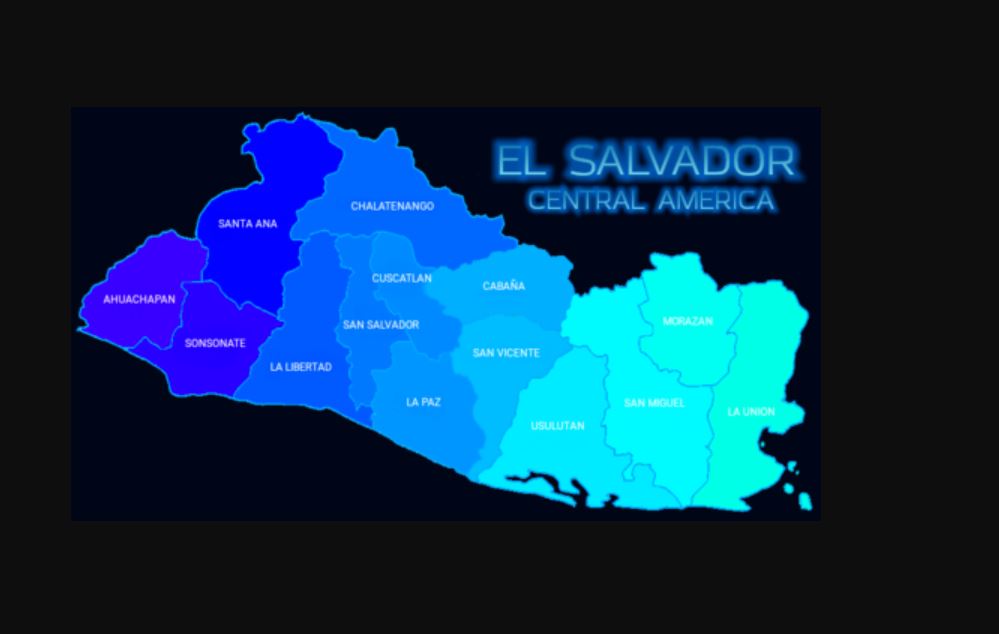This content was published: June 11, 2021. Phone numbers, email addresses, and other information may have changed.
Javier Gomez
by: Miriam Sluis

The perspective of Javier Gomez
Javier Gomez wants to put things in perspective. To tell the stories of inequity of his immigrant community and fellow People of Color. As an aspiring journalist, he’s working to make his contribution to a new way of being for humanity. There is a lot of work to be done. But Javier views it from all angles: “being a man doesn’t mean having to be misogynistic.”
How would you introduce yourself?
“I would introduce myself as Javi Gomez, an Immigrant, a Latino male of color, a brother, an uncle, and a son.”
What matters most to you in your life?
“My family without a doubt. My parents, my sister, my niece, my grandparents, my mentor Mr. McGee, my best friend Semeredin, and my sister’s dog Zelda. I could live without anything but them. They are my support systems and what fuel me to be better everyday. Every single one of them has changed my life in different ways and I am the person people see today thanks to them.”
Could you tell us more about Mr. McGee?
“Mr. McGee… I met him at Lincoln Highschool as a counsellor. Through this club he had; the Brothers of Color. I would go to him. That’s how the relationship started, now he’s a principal at Grant high School. He’s been a really huge part of my development.
“I moved here with my mom and my sister. My dad migrated to Mexico. My dad has influenced me in important ways, especially when I was still living in El Salvador. Going to an International School, I was already very influenced by American culture. I think my dad tried his best to keep me Salvadorian, like take me to the corner barbershop to get a haircut or go to the stadium to watch a soccer game. And at first I just wanted to stay home and play video games and do American things. Later I understood what he did.
“But the last time I saw my dad I was 14, now I’m almost 20. As a young man of color, having a male model is really important in developing how you’ll become. And having Mr. McGee rolling by and filling that role as a man of color, he was a really positive influence on me. He taught me being a man doesn’t mean having to be misogynistic.
“He taught me a better understanding of how the world works and even a better understanding of myself. I wouldn’t be here, I wouldn’t be thinking that way, if it wasn’t for him. And I still see him every Saturday, that relationship is still ongoing. I am an adult now, at least I’m considered that in my community of color, but there are still things we need help with.”
Does this world allow you to show up as you are?
“Sometimes. I feel like this world provides me certain spaces where I can show up as I really am, but overall, I can’t walk in authenticity wherever I go. That is a privilege I frankly don’t have. As a Person of Color, it does feel as If I am walking on eggshells most places I go, but from time to time I do find myself in spaces where I can be myself. Places like my home, the barbershop, and watching a movie with Semeredin and Mr. McGee.”
What inspired you to work at the MC Sylvania?
“What inspired me was the fact that there are not a lot of spaces where diversity and multiculturalism is promoted the way the MC promotes it, so I thought that working here would be a privilege. The community is also really great and that makes for a great working environment, the support I have received from everyone has been amazing and the experience has been unforgettable and unique.”
What are you studying?
“Right now I have my mind set on journalism, that is what I plan to study once I transfer and get done with my time here at PCC. I have always said that I have an obsessive personality when it comes to learning about new things, and I especially become infatuated about different types of topics all the time. I guess that in my mind these things would make me a pretty good journalist.”
At this point, the media seem like one of the pillars that need to be changed to come to a society that supports justice, equity, diversity and inclusion. How do you see your contribution to that change?
“It’s part of the reason why I want to go into journalism. When you’re part of these communities, you have a better perspective. Right now there is often a lack of being able to relate and lack of connections within communities of color. That’s something I could do, I can relate to the people.
“I want to focus more on TV, because I don’t see a lot of journalists that look like me. One of the main reasons is the lack of equity, in both big media companies and in local news media. And second, no one sees people of color as being the ones to stand in front of the camera. People put us in boxes; they guide us to certain jobs, but don’t provide us with the tools to be successful in other jobs. We’re not being given that opportunity.
“But the ways things are now, people are becoming more open to what people of color are going through. And people are looking for how we can have more information on that. I think that can help me on my road to becoming and being a journalist.”
How do you feel about Portland in that respect?
“This is a tough question for me. I would say that I have a love/hate relationship with Portland. I moved to Portland from El Salvador 5 years ago, and as an immigrant my perception of Portland has always been complicated,
“In a way I love how supportive people in this city can be towards causes that they believe. In another way, as a Person of Color, I find myself being upset and annoyed at times by the way people in this city seem to be so entitled and stubborn in their overwhelming whiteness. To put it really bluntly I sometimes feel as if White people in this city seem to think that they know what’s best for us and while I don’t doubt they have the best intentions, it feels as if they set us aside when it comes to conversions that have to do with our own communities.
“With all that being said, I can’t stay mad at Portland for too long. I definitely see Portland as my home now, and although I do want to get out there and explore the rest of the world, I can’t picture myself staying away from this place for too long. Portland is the place where I see myself settling in.”
How do you envision the future?
“I envision the future with hope. I feel like we as humans are constantly making progress, and although sometimes it feels like we are going backwards instead of forward, I truly think that there are more of us that want to create a better future than those who want to go back to the way things were before.”
What would you most want for the future?
“Personally, I want to become a better person who is more understanding of others. Our world is ever evolving and I want to be someone who is accepting and supportive of all people. That is why I try to educate myself about different things and issues that don’t directly affect me, because they affect others and that should be enough for me to care.
“Collectively, I wish everyone in the future shares my philosophy of understanding. I feel like our collective survival in this world heavily depends on how well we understand each other and what we go through and in order for us to have a prosperous future we have to make sure everyone has what they need.”
